- Joined
- Mar 25, 2009
- Messages
- 9,841 (1.67/day)
- Location
- 04578
| System Name | Old reliable |
|---|---|
| Processor | Intel 8700K @ 4.8 GHz |
| Motherboard | MSI Z370 Gaming Pro Carbon AC |
| Cooling | Custom Water |
| Memory | 32 GB Crucial Ballistix 3666 MHz |
| Video Card(s) | MSI RTX 3080 10GB Suprim X |
| Storage | 3x SSDs 2x HDDs |
| Display(s) | ASUS VG27AQL1A x2 2560x1440 8bit IPS |
| Case | Thermaltake Core P3 TG |
| Audio Device(s) | Samson Meteor Mic / Generic 2.1 / KRK KNS 6400 headset |
| Power Supply | Zalman EBT-1000 |
| Mouse | Mionix NAOS 7000 |
| Keyboard | Mionix |
Thanks to some photographs by Andreas Schilling, of HardwareLuxx, it is now confirmed that AMD's Radeon RX 590 will make use of the 12 nm FinFET process. The change from 14 nm to 12 nm FinFET for the RX 590 brings with it the possibility of both higher clock speeds and better power efficiency. That said, considering it is based on the same Polaris architecture used in the Radeon RX 580 and 570, it remains to be seen how it will impact AMDs pricing in regards to the product stack. Will there be a price drop to compensate, or will the RX 590 be more expensive? Since AMD has already made things confusing enough with its cut down 2048SP version of RX 580 in China, anything goes at this point.
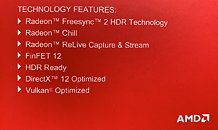
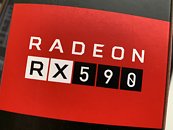
Thanks to the Final Fantasy XV Benchmark being updated with results for the RX 590, we at least have an idea as to the performance on offer. In the 2560x1440 resolution tests, performance has improved by roughly 10% compared to the RX 580. Looking at the 3840x2160 resolution results shows a performance improvement of roughly 10 to 15%. This uplift in performance allows the RX 590 to put some serious pressure on NVIDIA's GeForce GTX 1060 6 GB. Keep in mind that while the RX 580 was always close, AMD's latest Polaris offering eliminates the gap and is far more competitive in a title that has always favored its competition, at least when it comes to comparing reference cards.
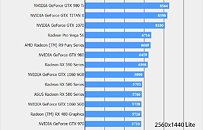
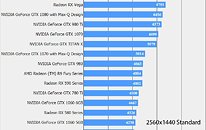
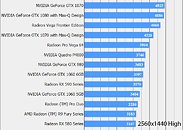
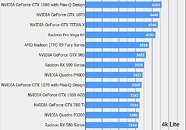
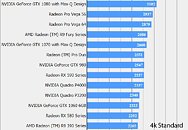
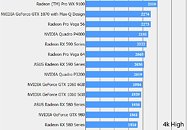
When manual overclocking is taken into account, AMD's RX 580 can typically see a performance increase of around 5 to 10%. While this is speculation, in theory, it would put it on par or very near the RX 590 in terms of performance. However, no overclock is guaranteed so keeping that in mind, the move to the 12 nm FinFET process delivers a guaranteed performance boost with the possibility of further overclocking headroom. This should allow the RX 590 to further increase its performance advantage over the RX 580 and 570. Only time will tell how things shake out, but at the very least users can expect the AMD Radeon RX 590 to deliver on average 10% more performance over the current crop of RX 580 graphics cards.
View at TechPowerUp Main Site


Thanks to the Final Fantasy XV Benchmark being updated with results for the RX 590, we at least have an idea as to the performance on offer. In the 2560x1440 resolution tests, performance has improved by roughly 10% compared to the RX 580. Looking at the 3840x2160 resolution results shows a performance improvement of roughly 10 to 15%. This uplift in performance allows the RX 590 to put some serious pressure on NVIDIA's GeForce GTX 1060 6 GB. Keep in mind that while the RX 580 was always close, AMD's latest Polaris offering eliminates the gap and is far more competitive in a title that has always favored its competition, at least when it comes to comparing reference cards.






When manual overclocking is taken into account, AMD's RX 580 can typically see a performance increase of around 5 to 10%. While this is speculation, in theory, it would put it on par or very near the RX 590 in terms of performance. However, no overclock is guaranteed so keeping that in mind, the move to the 12 nm FinFET process delivers a guaranteed performance boost with the possibility of further overclocking headroom. This should allow the RX 590 to further increase its performance advantage over the RX 580 and 570. Only time will tell how things shake out, but at the very least users can expect the AMD Radeon RX 590 to deliver on average 10% more performance over the current crop of RX 580 graphics cards.
View at TechPowerUp Main Site











